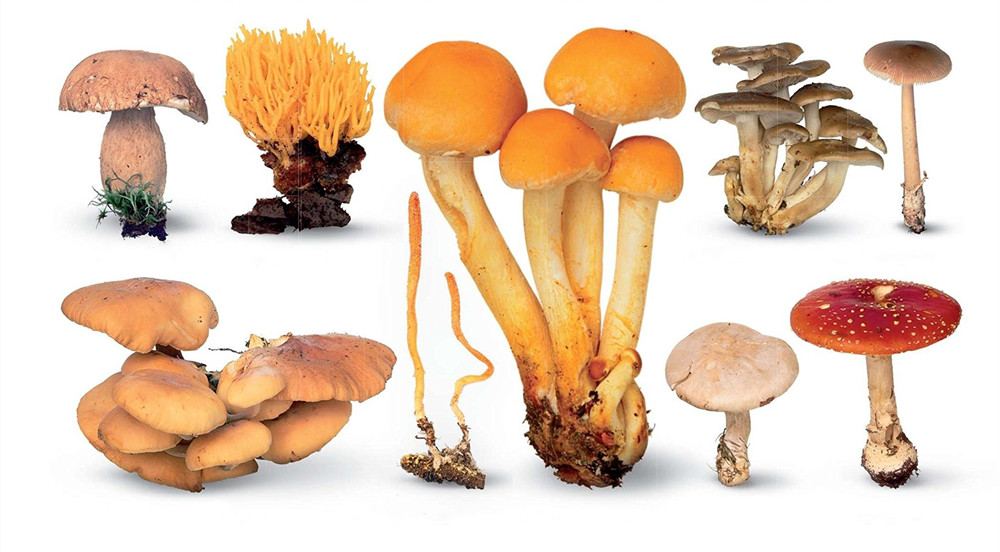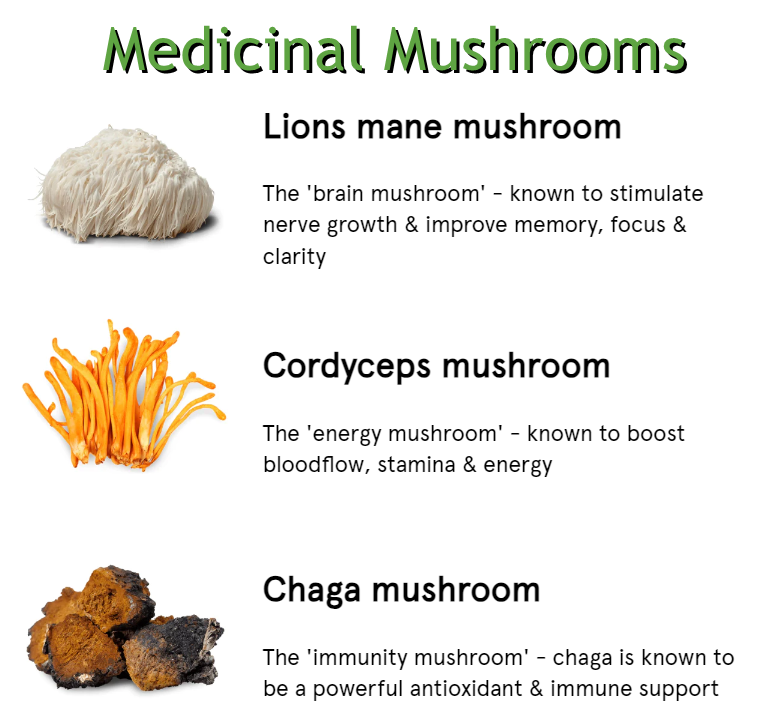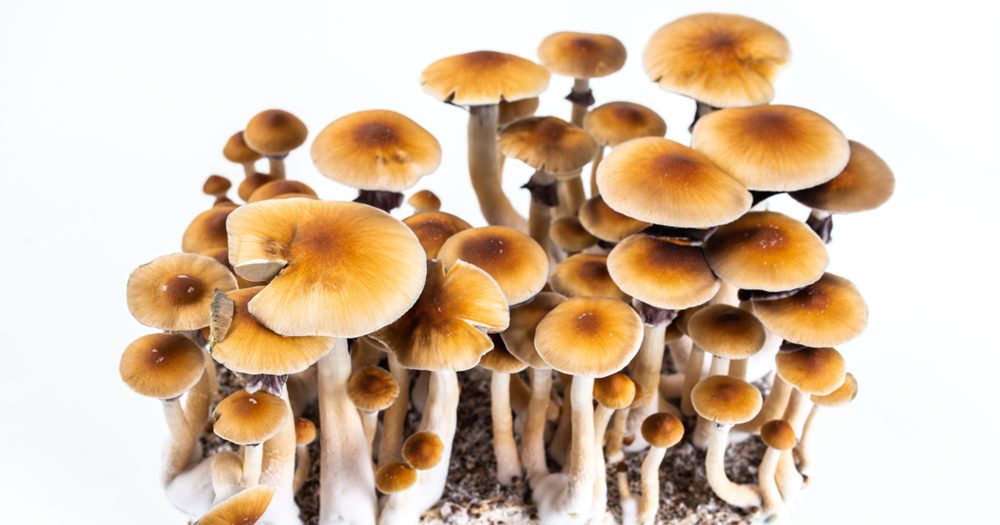Functional mushrooms and psychedelic mushrooms are two distinct types of fungi that have gained attention for their unique properties. While both offer potential benefits, they differ significantly in terms of their effects and applications. In this blog post, we will explore the differences between functional mushrooms and psychedelic mushrooms, their potential benefits, and the precautions to consider.
What’s Functional Mushrooms?
Functional mushrooms, also known as medicinal mushrooms, have been used for centuries in traditional medicine systems. Functional mushrooms are rich repositories of antioxidants and natural anti-inflammatories. They also contain bioactive compounds like beta-glucans and polysaccharides that contribute to their medicinal properties. You might see functional mushroom extract at your local grocery store, but they are more often found in supplement form, including capsules, gummies or tinctures. Mushroom supplements typically contain blends of several different mushroom species to offer a wide range of functional health benefits. These fungi contain unique compounds that offer cognition-enhancing, mood-boosting and immune-strengthening effects. Known for their ability to boost immunity, improve cellular and gut health, reduce chronic inflammation, aid in detoxification and help you age gracefully, functional mushrooms are becoming increasingly popular as the scientific community recognizes their powerful medicinal properties.
Type of Functional mushrooms
- Lion’s Mane
- Reishi
- Chaga
- Cordyceps
- ……
What are Psychedelic Mushrooms?
Psychedelic mushrooms, also known as magic mushrooms or shrooms, Psilocybe cubensis or “psilocybin mushrooms”, contain a naturally occurring compound called psilocybin. When ingested, psilocybin converts to psilocin in the body, leading to altered perception, hallucinations, and spiritual experiences. Psilocybin has been shown to alter consciousness and free people from their usual thinking patterns, and it is thought to help address addiction and depression, they have been used in spiritual, therapeutic, and recreational contexts. Research into psilocybin has shown promising results for the treatment of mental health conditions including depression and PTSD.
People take psilocybin mushrooms recreationally for an altered sense of reality, a connection to nature, and euphoria. But some people have “bad trips” where they can feel fear, anxiety, or panic. It’s also possible for a person to overdose on psilocybin mushrooms and have severe side effects. Taking magic mushrooms with other drugs, such as alcohol or cannabis, can increase the risk of having a bad trip.
Type of Psychedelic mushrooms
- Psilocybe
- Panaeolus (including Copelandia)
- Inocybe, Pluteus
- Gymnopilus
- Pholiotina
- ……
What’s the difference between functional mushrooms and psychedelic mushrooms?
Functional mushrooms, like reishi, chaga, and lion’s mane, are a growing trend in the wellness space. They are often added to smoothies and coffees and marketed by influencers who promote their brain-boosting effects on social media. Unlike psychedelic mushrooms, which can be fresh or dried, functional mushrooms do not contain any hallucinogenic compounds like psilocybin. Instead, they provide health-boosting nutrients like vitamin D, selenium and a host of others. Polysaccharides and terpenoids, for example, are found in most functional mushrooms and have shown to boost immune system function. Adaptogens also exist, and these have been shown to promote stress reduction and help the body adjust to environmental influences.
Functional mushrooms are gaining popularity and are cropping up in drinks, supplements, and other products that claim to promote wellness. Although they haven’t been shown to treat mental health disorders, some functional mushroom supplements have been reported to reduce stress levels and help improve focus. Some of them are also being explored as a potential treatment for cancer, boosting immune system function and helping the body fight the disease.
Psychedelic mushrooms are fungi that contain psychoactive substances like psilocybin, psilocin and can cause a hallucinatory state. they bind to serotonin receptors in the brain, leading to a rewiring of the neural network and triggering changes in perception. They’re often taken recreationally and have been used for spiritual purposes in some cultures. Ongoing research suggests that psychedelic mushrooms can reduce symptoms of anxiety, depression, and PTSD.
However, psilocybin isn’t legal in most countries, and consuming it is not recommended for those without experience with psychoactive mushrooms. However, there is no prohibition on the sale of functional mushroom products, and they can be purchased legally online. Psychedelic drugs have the longer-term potential to revolutionize the treatment of mental health conditions, and a growing number of companies are combining psychedelic drug development with functional mushroom product research.
Write in the last
Functional mushrooms and psychedelic mushrooms are distinct in their properties and effects. Functional mushrooms offer various health benefits, primarily focused on immune support, cognitive health, and stress reduction. On the other hand, psychedelic mushrooms induce altered states of consciousness and have been used in spiritual and therapeutic contexts. Mushrooms that are not psychedelic have been found to improve immune function and reduce stress levels, and are a popular ingredient in functional drinks and supplements sold in health food stores. The ability of these mushrooms to enhance performance without any psychedelic or hallucinogenic effects will make them an attractive option for busy, stressed-out consumers. As more consumers become aware of the power of natural mushrooms, functional mushrooms will continue to grow in popularity. Remember, making informed choices ensures your well-being and allows you to fully appreciate the potential benefits these mushrooms have to offer.
- Dandelion Extract: What It Is, Benefits, Uses and Side Effect - April 23, 2024
- Is Berberine Extract Help For Weight Loss? - April 11, 2024
- Why Is Pysllium Husk Powder A Popular Meal Replacement Ingredient? - April 3, 2024




